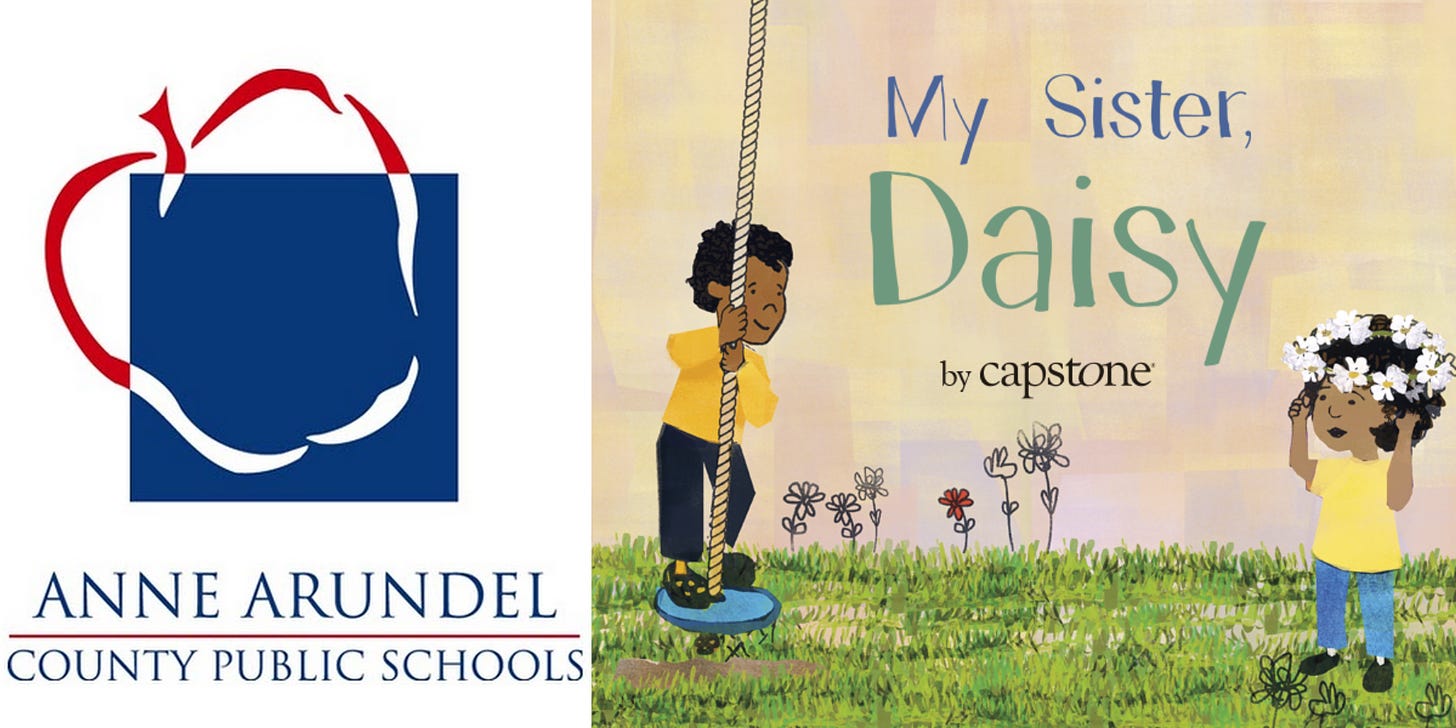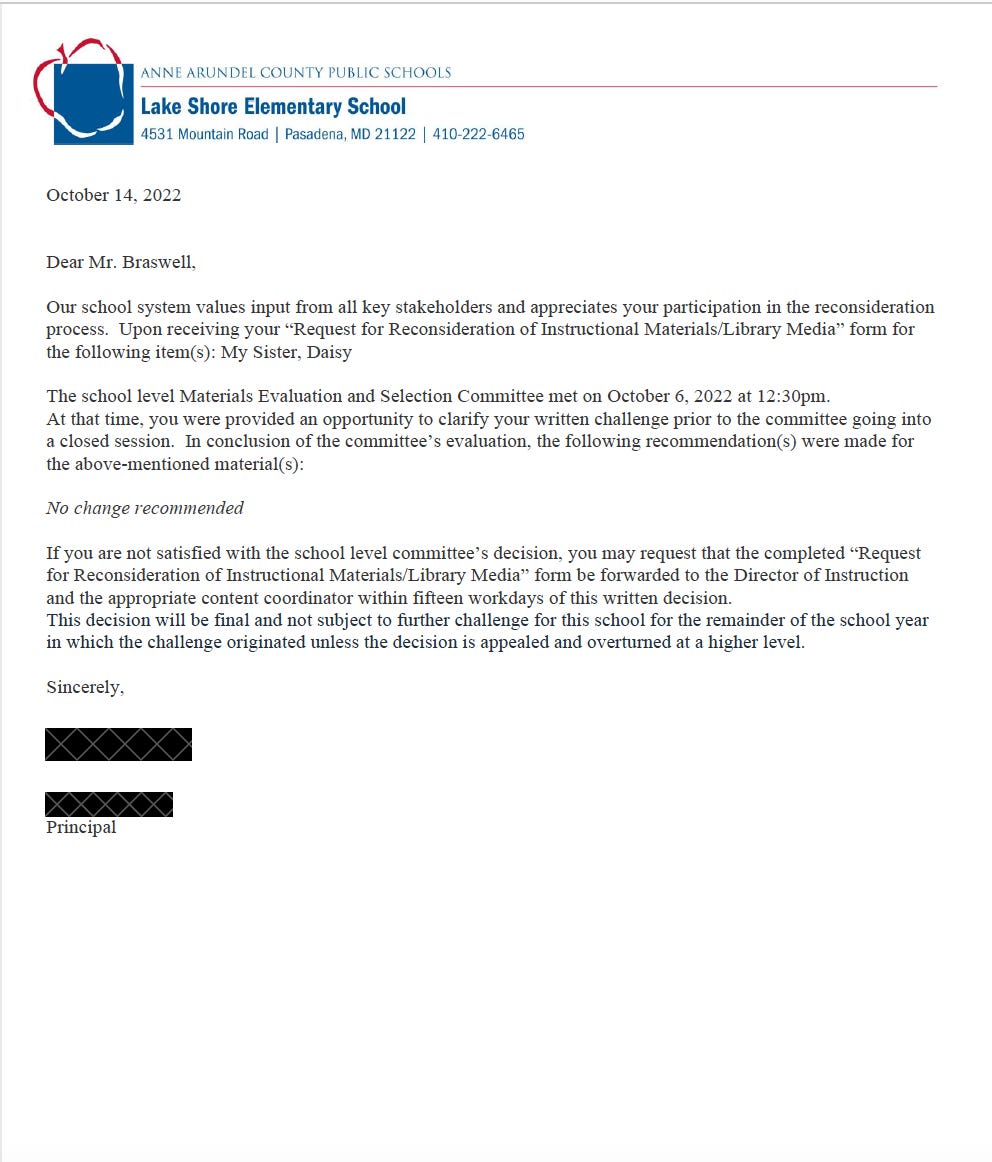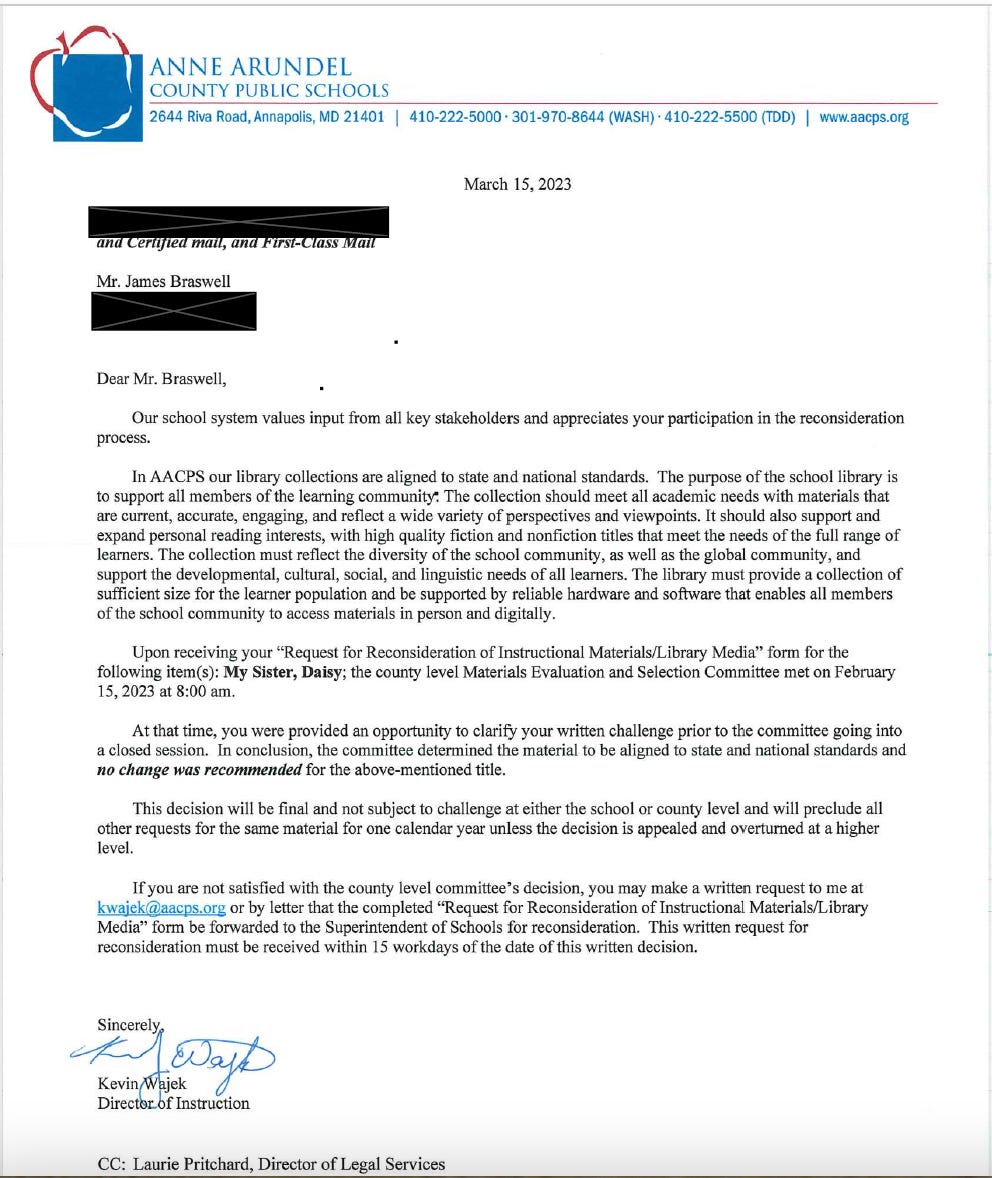Last year, I wrote about a “children’s book” my daughter brought home from her elementary school library. The book is titled My Sister Daisy. Feel free to click the link to read.
The book celebrates the story of an elementary school student with a mental condition called gender dysphoria, more commonly known in today’s society as transgenderism. There’s no need to rehash what I previously wrote about why this book does not belong in her library, or any elementary school’s library. This is a short story about what happened after I discovered the book.
I had two choices.
Light the book on fire in my firepit.
Follow the applicable appeal process laid out by Anne Arundel County Public Schools.
Rather than be accused of being a book burner by other book burners, I chose to file a “Request for Reconsideration of Instructional Materials/Library Media.” After I filed, I was given the opportunity to clarify/provide supplemental testimony about why the book should be removed. I took the opportunity and for 15 minutes stated my case using the same facts that I presented in my previous post. I included additional facts to support the argument that gender dysphoria should not be celebrated in a children’s library.
After 15 minutes, I was notified that I would receive a written decision.
This was my written decision.
Note: I removed the principal’s name because this was a committee vote at the elementary school level and the anger should not be directed at him.
“No change recommended” was the answer. No counterargument. No written explanation. Nothing. You would think that someone fighting for the innocence of our children who prepared a reasoned, well-thought-out argument would get a little more than “no change recommended.”
As the recommendation stated, I had a chance to appeal Lake Shore Elementary’s decision. I took that opportunity.
Four months after I filed my initial appeal, I was finally given the opportunity to present my argument in front of the county-level Materials and Evaluation Committee. I knew what I would say wouldn’t matter. While I presented my testimony, which included reading an article about transgenderism from a Bernie Sanders supporter who worked in a clinic serving transgender kids, I watched some of the committee members smile. One snickered. Here’s one of the snippets that I read.
The girls who came to us had many comorbidities: depression, anxiety, ADHD, eating disorders, obesity. Many were diagnosed with autism, or had autism-like symptoms. A report last year on a British pediatric transgender center found that about one-third of the patients referred there were on the autism spectrum.
Frequently, our patients declared they had disorders that no one believed they had. We had patients who said they had Tourette syndrome (but they didn’t); that they had tic disorders (but they didn’t); that they had multiple personalities (but they didn’t).
The doctors privately recognized these false self-diagnoses as a manifestation of social contagion. They even acknowledged that suicide has an element of social contagion. But when I said the clusters of girls streaming into our service looked as if their gender issues might be a manifestation of social contagion, the doctors said gender identity reflected something innate.
This all fell on deaf ears because one month later I received the following.
Once again, “no change was recommended.” No counterargument. No reasoning. Nothing.
So, I’m at an impasse now. I know damn well by appealing (I did already) that it will fail, and I will get another “go pound sand, your kids aren’t important enough for a proper explanation” answer.
Or do I take it one more step? Do I look to the arena where I make my usual combat? I do know one thing, I need more parents to speak out—parents who bury themselves in cell phones and nonsense YouTube videos to actually do something about protecting their kids.





